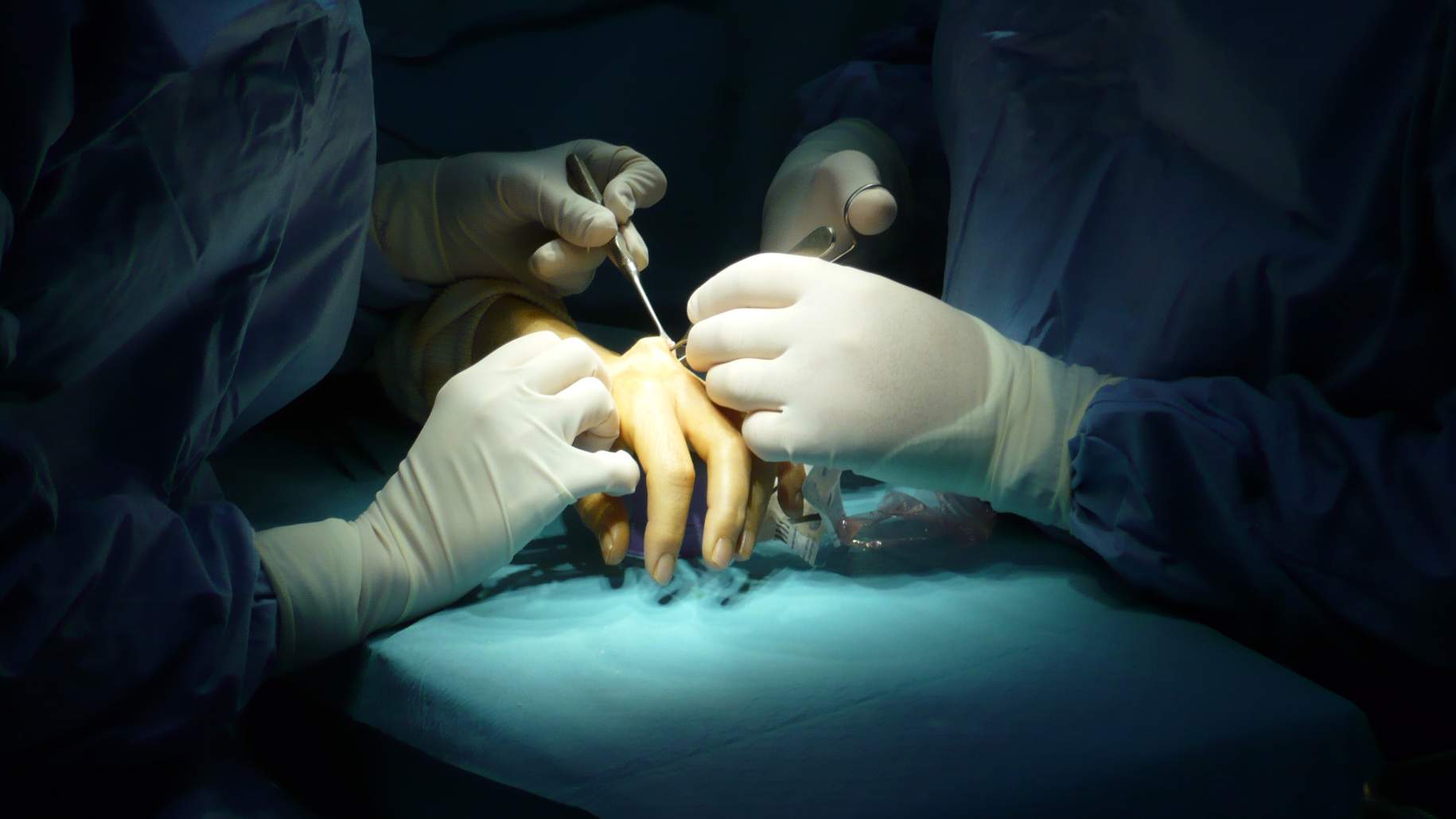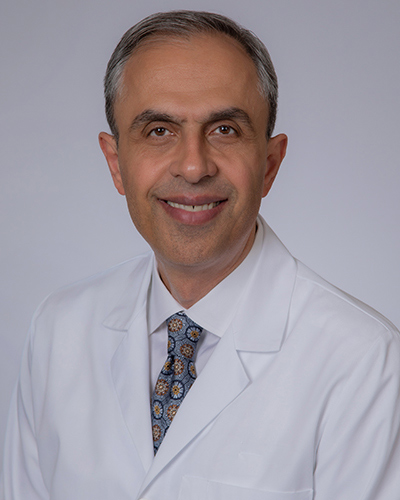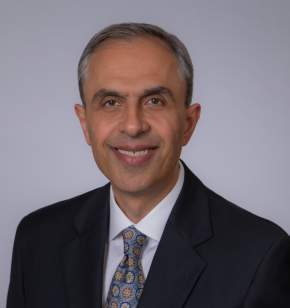Peripheral Nerve Neurosurgery

- What Does a Peripheral Nerve Neurosurgeon Do?
- Is Peripheral Nerve Neurosurgery a Subspecialty?
- What Are the Requirements of Peripheral Nerve Neurosurgery Training?
- Is a Fellowship Required To Practice Peripheral Nerve Neurosurgery?
- What Types of Diseases Are Treated by Peripheral Nerve Neurosurgeons?
- Key Takeaways

Peripheral nerve neurosurgery is, at its simplest definition, the surgical treatment of nerves in the peripheral nervous system outside of the brain and spinal cord. Peripheral nerve neurosurgeons may operate on several peripheral nerve diseases, such as traumatic nerve transections or crush injuries, tumors of the nerves or the nerve sheaths, and compression neuropathies.
Herein, we’ll delve deeper into what it means to be a peripheral nerve neurosurgeon so you can make an informed decision when searching for elective care or a second opinion.
What Does a Peripheral Nerve Neurosurgeon Do?
Neurosurgeons specializing in peripheral nerve surgery may have a wide variety of clinical, academic, and research commitments. Clinically, they operate on nerves in the peripheral nervous system, which encompasses all nerves and nervous structures outside of the brain and spinal cord (central nervous system).
In the setting of traumatic nerve injury, peripheral nerve neurosurgeons work diligently to repair nerves and return motor and sensory function to patients. They also operate on nerve and nerve sheath tumors, making sure to remove as much tumor as possible while preserving normal nerve function.
Peripheral nerve neurosurgeons also release entrapment and compression of nerves by surrounding structures such as the carpel tunnel and Guyon’s tunnel, which may help to resolve pain and/or numbness and significant functional deficit. Peripheral nerve neurosurgeons may also be heavily involved in academia/research and training neurosurgeons in their craft. Given the various recent advancements in our understanding of nerve regeneration and repair, basic science and research are also often a part of a peripheral nerve neurosurgeon’s repertoire.
Is Peripheral Nerve Neurosurgery a Subspecialty?
Peripheral nerve surgical expertise is a subspecialty of neurosurgery that is achieved by pursuing a 1-year fellowship after completion of a 7-year neurosurgical residency. This 1-year fellowship may incorporate exposure to multidisciplinary management strategies from the fields of neurosurgery, orthopaedic hand surgery, and plastic surgery. Moreover, many peripheral nerve fellowships include opportunities for involvement in and advancement of translational research focused on areas of interest within the world of peripheral nerve neurosurgery.
Why should you have your surgery with Dr. Cohen?
Dr. Cohen
- 7,500+ specialized surgeries performed by your chosen surgeon
- More personalized care
- Extensive experience = higher success rate and quicker recovery times
Major Health Centers
- No control over choosing the surgeon caring for you
- One-size-fits-all care
- Less specialization
For more reasons, please click here.
What Are the Requirements of Peripheral Nerve Neurosurgery Training?
Requirements may vary from one program to the next, but most programs consist of a 1-year of training following the completion of a neurosurgery residency program, and may incorporate research experience, didactics and educational seminars, cadaveric courses, intensive one-on-one training with senior faculty, and the training of junior residents in the discipline of peripheral nerve neurosurgery.
Is a Fellowship Required To Practice Peripheral Nerve Neurosurgery?
Neurosurgery residency exposes residents to peripheral nerve neurosurgery, and so most neurosurgeons are able to perform peripheral nerve neurosurgery without a fellowship. However, particularly rare, complicated, or critical cases may be referred to a neurosurgeon with advanced training in the discipline.
What Types of Diseases Are Treated by Peripheral Nerve Neurosurgeons?
Peripheral nerve surgeons perform a variety of surgical procedures. Essentially, any surgical treatment of a nerve outside of the brain or spinal cord may be handled by such a surgeon. These surgeons treat nerve diseases stemming from traumatic injuries, tumors, entrapments and compressions, and facilitate nerve regeneration and repair. Such diseases include but are not limited to:
- Brachial plexus disorders: The brachial plexus is an extensive network of nerves in the axillary region (near the armpits) that allows for control of complex functions of the upper arms, forearms, and hands. Trauma or compression of these nerves can result in sensory (pain, tingling, numbness) or motor symptoms (weakness) that can deeply affect the quality of life. Peripheral nerve neurosurgeons operate on these conditions and can potentially alleviate much of the issues these patients face.
- Entrapped nerves: Many nerves all over the body course through tunnels and sheaths that can become compressive from various processes, ranging from trauma to diabetes to thyroid disorders. When these issues occur, decompression, or the alleviation of the pressure on these nerves, can often resolve the symptoms.
- Neuropathic pain: There are various causes of neuropathic pain, or neuralgia, that result in pain or discomfort in the distribution of specific nerves. These causes can be secondary to compression, alcohol use, diabetes, or even viruses such as the herpes virus. Various treatments exist for these issues, ranging from decompression to nerve blocks to nerve ablation (burning the nerves to remove their sensory input). All these treatments can be performed by peripheral nerve neurosurgeons.
- Trauma: Many forms of trauma, especially penetrating injuries, that injure peripheral nerves can be repaired by peripheral nerve surgeons. Various advances in peripheral nerve neurosurgery have increased the ability of surgeons to adequately repair nerves and therefore facilitate return of a surprisingly broad range of function.
- Tumors: Nerve sheaths and nerves themselves can form tumors, which can be excised and repaired. These surgeons can also monitor patients for healing and adequate return of function, and plan for subsequent treatment and follow-up.
Key Takeaways
- Peripheral nerve neurosurgeons treat diseases of the peripheral nervous system, including traumatic injuries of the nerves, nerve sheath tumors, as well as entrapment and compression neuropathies.











